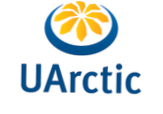Dutkanetihkka
Sámi allaskuvla lea dutkanetihka dáfus čadnon našunála ja internašonála njuolggadusaide ja rávvagiidda. Našunála dásis leat Norgga lágat nu go dutkanetihkkaláhka (forskningsetikkloven) ja persovdnadiehtoláhkaásahus (personopplysingsforskriften) mat gustojit.
Riikkaidgaskasaš dásis čuovvu allaskuvla WINHEC-akkrediterema bokte dutkanehtalaš neavvagiid WINHEC Research Standards. Sámi allaskuvla lea maid ovdánahttán siskkáldas politihka immateriála vuoigatvuođaid hárrái, mii dohkkehuvvui allaskuvlastivrras juovlamánu 2014:s.
Muđui leat Norggas De nasjonale forskningsetiske komiteene, main leat oppalaš dutkanehtalaš rávvagat (dárogillii: Generelle forskningsetiske retningslinjer ja eŋgelasgillii: General guidelines) čohkkejuvvon forskningsetikk.no neahttasiidui.
- WINHEC Research Standards
Indigenous Research
(a) respects local Indigenous authority particularly that of Elders and respected knowledgeable others;
(b) recognises knowledge as part of a living and constantly adapting system that is grounded in the past, but continues to grow through the present and into the future and reinforces this in research approach;
(c) uses the local language respectfully as a foundation for interpretation and meaning;
(d) understands relationships across knowledge derived from diverse knowledge systems;
(e) acknowledges multi-ownership and levels of knowledge;
(f) addresses community and individual responsibility/ownership of knowledge.
Individual Researchers
(a) work with local Indigenous Elders and Respected knowledge holders;
(b) ensure prior and informed consent;
(c) recognise their responsibilities and the ongoing influences of Western knowledge;
(d) build on the knowledge and skills of the local cultural community as a foundation from which to achieve success;
(e) engage responsibly and effectively in research activities that are grown from,/based on Indigenous ways of knowing and doing;
(f) demonstrate appreciation of the relationships, connections and processes of interaction of all elements in and of the world;
(g) situate one’s self and define ones purpose for undertaking research competently;
(h) develop a critical self awareness.
Research Process and Practice (Enacting Research)
(a) addresses requirements outlined in this document and locally;
(b) incorporate Indigenous ways of knowing and practicing in its work linking what is being researched to everyday lives;
(c) works closely with individuals and communities to achieve a high level of complementary research outcomes and expectations;
(d) honours Indigenous Elders and respected knowledge holders scholarship and authority;
(e) recognises the potential of individuals and communities and provides the training as necessary for them to participate powerfully in research;
(f) accepts responsibility to protect sacred sites, secret and sacred knowledge and other artefacts.
Organisational Practice (Facilitating Research)
(a) has high level of involvement of Indigenous staff and Elders and respected knowledge holders in lead organizations;
(b) fosters on-going participation, communication and interaction between researchers, programs and community researchers and personnel;
(c) recognizes and assures ownership of intellectual knowledge – ownership of data needs to sit with the Indigenous community;
(d) provides remuneration for time and other costs and, dispersal of publication profits to community;
(e) ensures sacred sites, secret and sacred knowledge and other artefacts are protected.
Community Practice (Linking Research)
(a) recognises local Indigenous Elders and Respected knowledge holders;
(b) honours the primacy and validity of Indigenous knowledge as it is defined and articulated locally;
(c) takes an active authoritative role in research while nurturing family responsibility, sense of belonging and cultural identity;
(d) assists new members in learning and utilizing knowledge and information generated through research;
(e) contributes to all aspects of research design, implementation and outcomes for local advantage; and,
(f) ensures sacred sites, secret and sacred knowledge and other artefacts are protected



